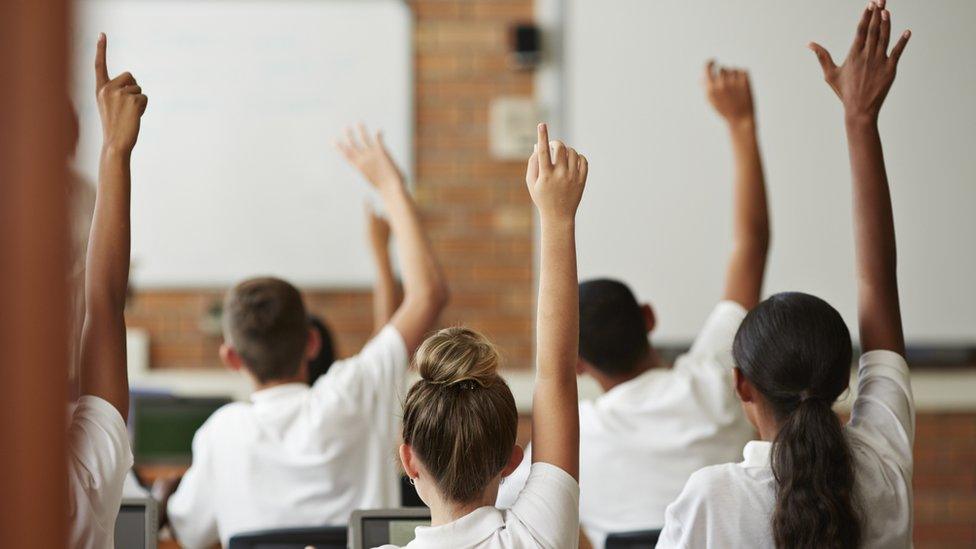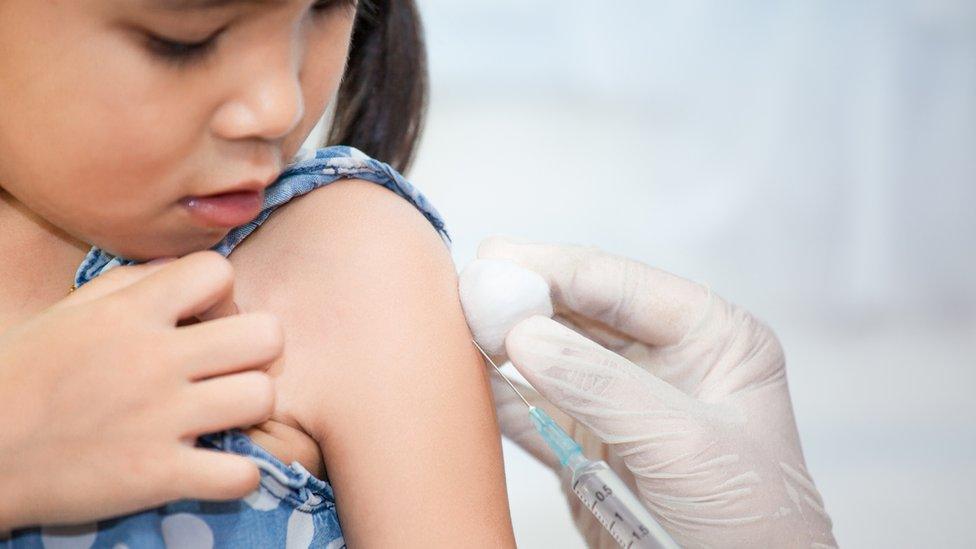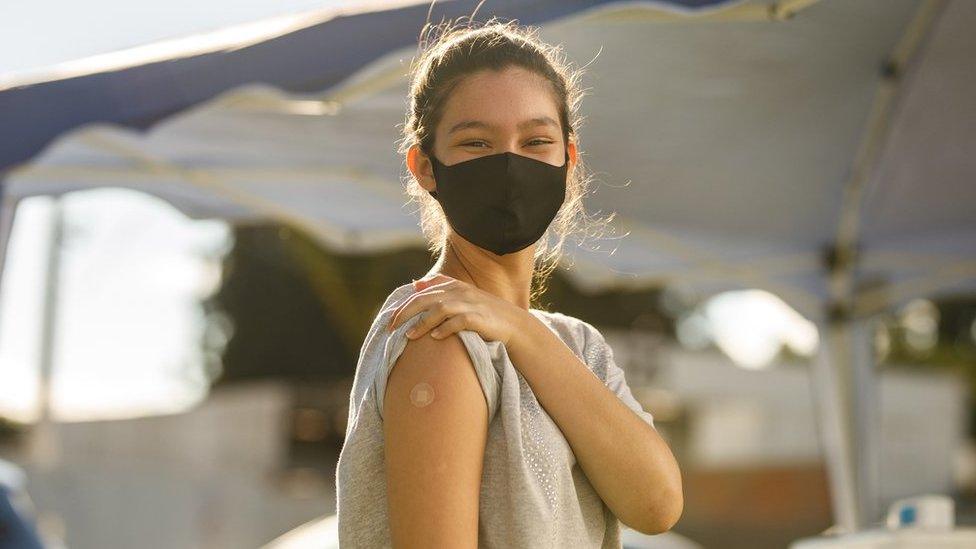Covid vaccine not recommended for most 12-15 year olds
- Published
- comments

The UK's vaccine advisory body has said it thinks healthy children aged 12-15 years old should not be given the Covid-19 vaccination.
But, the group, called the JCVI, do say that more children in this age group with underlying health conditions should be vaccinated.
The JCVI say that because children are at such low risk from the virus, they decided that vaccination would offer only "marginal gain" and, therefore, there was "insufficient" evidence to offer mass vaccination for this age group.
No vaccines are yet approved for use in children under the age of 12.
The Joint Committee on Vaccination and Immunisation (JCVI) is an independent group that advise the government on health and vaccines in the UK.
Ministers in England, Wales, Scotland and Northern Ireland all take on board their recommendations and then approve the plans.
There's been lots of discussion about whether children in the UK should be offered the coronavirus vaccine.
Scientists have been trying to work out whether it's worth giving the vaccine to children when the risk of otherwise healthy children becoming seriously ill from Covid is very low.
Although arguments have been put forward for vaccinating all children the JCVI looked at the evidence and decided that currently the benefits did not outweigh the risks of doing so.
The decision on healthy children was based on concern over an extremely rare side effect of the Pfizer vaccine which can cause heart inflammation in some people.
The reports of the inflammation - known as myocarditis - in those who have had the jab are extremely rare. But it can be serious and this particular side-effect is more likely to affect younger men.
Vaccines: What are they and how can they help fight Covid-19?
The JCVI did conclude that the benefits of the vaccine did outweigh the risks for 12-15 year olds who already had underlying health conditions.
Children with conditions such as severe neurodisabilities, Down's syndrome and weak immune systems, as well as those living with vulnerable adults, were already eligible for the jabs.
Doctors identified that children with chronic heart, lung and liver conditions were at much higher risk of Covid than healthy children.
Clinically vulnerable means those who are at greater risk of becoming seriously ill or needing hospital treatment with coronavirus - usually because of an underlying medical condition.
The JCVI also now says that children with poorly-controlled asthma and other respiratory conditions which can result in severe illness from Covid should also be offered vaccination.
This means an extra 200,000 12-15 year olds with underlying conditions will now be eligible for two doses of vaccine.
What about going back to school?

The JCVI said the government could consider wider issues, including whether not vaccinating more children could lead to disruption in schools.
The Health Secretary Sajid Javid has asked chief medical officers across the UK to look at whether that means more children aged 12-15 should get the vaccine.
What have the JCVI said?
Prof Wei Shen Lim, chair of Covid immunisation for the JCVI, said it was "taking a precautionary approach".
"The margin of benefit is considered too small to support universal Covid-19 vaccination for this age group at this time.
"The committee will continue to review safety data as they emerge," he added.
- Published20 July 2021

- Published10 June 2021

